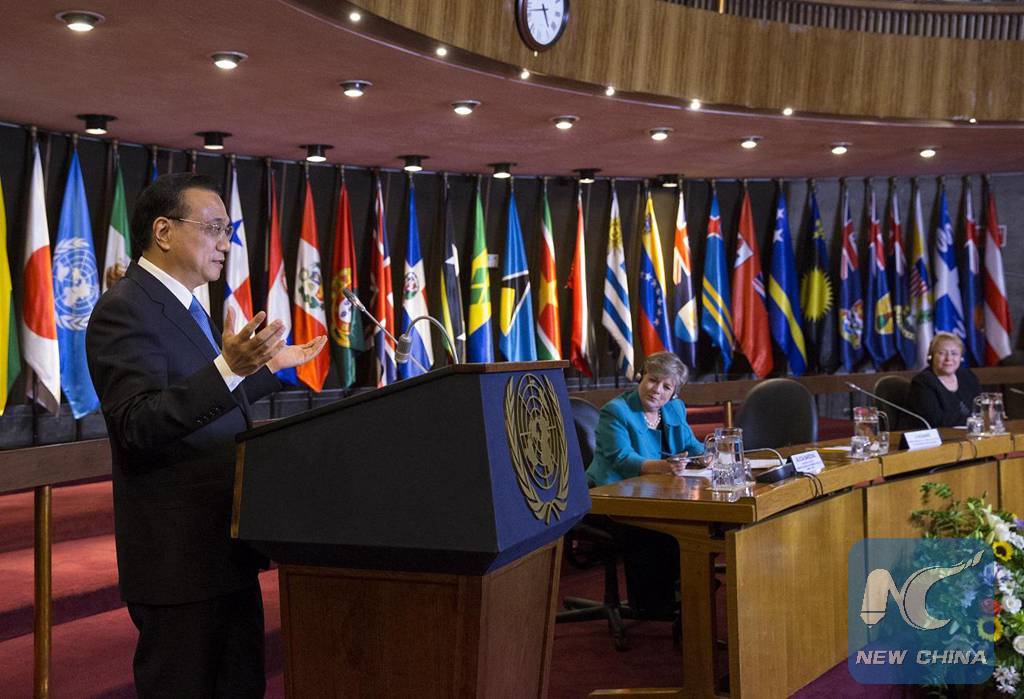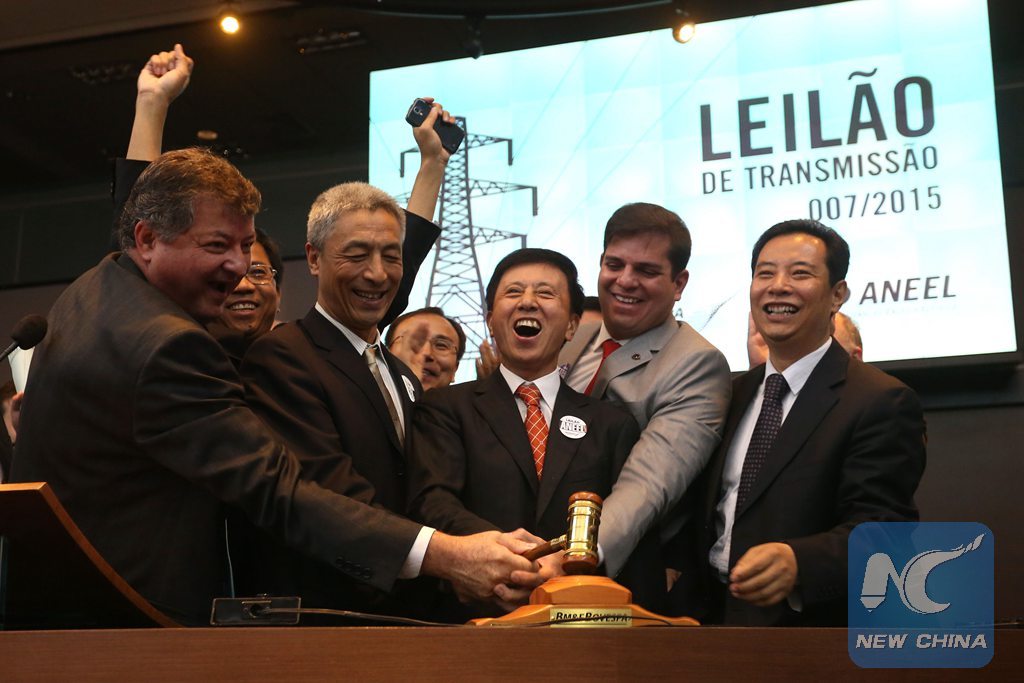
Chinese Premier Li Keqiang delivers a speech at the Economic Commission for Latin America and the Caribbean (ECLAC), in Santiago, Chile, May 25, 2015. (Xinhua/Ding Lin)
SANTIAGO, June 15 (Xinhua) -- Foreign direct investment (FDI) in Latin America and the Caribbean fell 9.1 percent in 2015 to reach 179.1 billion U.S. dollars, the lowest figure since 2010, according to the Economic Commission for Latin America and the Caribbean (ECLAC) on Wednesday.
At the launch of its new report, "Foreign Direct Investment in Latin America and the Caribbean 2016", the UN body linked this drop to low investment in mining and oil and gas, as well as an economic slowdown across the region, especially Brazil.
For 2016, the report said FDI could drop 8 percent if countries in the region do not seek out quality capital investments.
Alicia Barcena, ECLAC's executive secretary, told a press conference that "in the current global economy, FDI is linked to relevant actions in national and regional development strategies."
She added that countries "need to...diversify their economies, empower innovation, incorporate new technologies, and face the challenges of the 2030 Sustainable Development Goals."
The drop in the region hit Brazil the hardest, with FDI falling 23 percent, or 75 billion U.S. dollars. However, Brazil remains the main destination of FDI, claiming 42 percent of the regional total.

Executive Vice President and Deputy General Manager of State Grid Corporation of China, Yang Qing (C), celebrates after won an auction for the procurement of the second transmission system of power generated by hidroelectric Belo Monte at BM&FBovespa Stock Market in Sao Paulo, Brazil, on July 17, 2015. (Xinhua/Rahel Patrasso)
In Mexico, the second-largest receiver, FDI rose by 18 percent to reach 30.285 billion U.S. dollars, the highest level in seven years. More investments in the manufacturing, automotive and telecommunication sectors helped reach this level.
However, the woes of the mining industry and its falling prices contributed to FDI falling in Colombia by 26 percent and in Chile by 8 percent.
ECLAC also highlighted important changes in FDI patterns over the last decade: the relevance of the extractive industries has fallen, the automotive sector is showing particular vigor, while telecommunications and renewable energies are growing. "Investments in renewable energies, and other environmental proposals, remain a pillar of ECLAC's proposal to develop the region...and make it a leader in productivity, energy and low-carbon consumption," emphasized Barcena.
The fall of FDI seen in Latin America and the Caribbean in 2015 contrasted with the huge increase of FDI from China.
According to China's Ministry of Commerce, Chinese direct non-financial investment in this region reached 21.46 billion U.S. dollars in 2015, up by 67 percent from 12.85 billion U.S. dollars in 2014.

